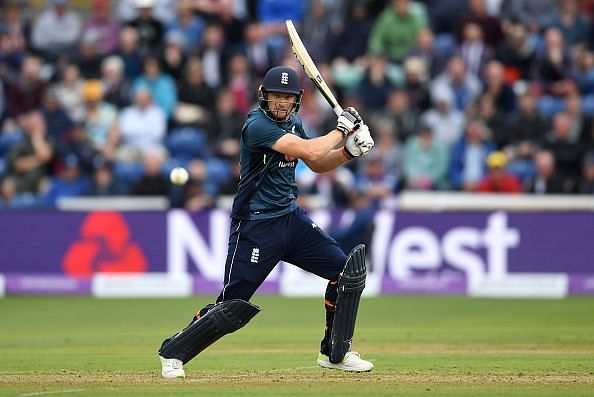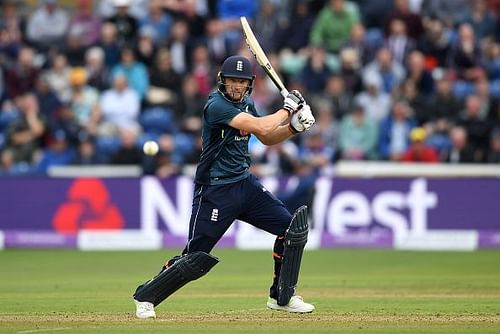
ICC World Cup 2019: Can England overcome World Cup Jinx and lift maiden title?

Since the inception of ODI cricket, there have been teams which had long periods of dominance at the very top. The mighty Windies of the late 70s and 80s ruled the roost in the ODI arena.
At the turn of the century, Australia reached the zenith and extended their hegemony in the first decade of the new millennium. In the 90s, South Africa under Hansie Cronje, Ranatunga-led Sri Lanka and the enigmatic Pakistan team were the best among the rest.
Over the last five years, India under the captaincy of MS Dhoni and Virat Kohli have been the dominant ODI side. England, the 'Inventors of the game' were pretty competitive in the 80s and 90s but they lacked the intent to make it to the very top.
While most cricket pundits feel that winning the Ashes was their number 1 priority, others are of the view that England’s conventional and orthodox style of playing cricket was never the best bet for ODI cricket.
Going by the record books, England have made it to three finals at ICC World Cups but a title still eludes them.
In the 80s, England were one of the top ODI sides with a plethora of world-class cricketers. While their batting looked a power packed unit with Graham Gooch, Allan Lamb, Robin Smith, David Gower and Mike Gatting, the bowling attack was a handful with the famed duo of Sir Ian Botham and Bob Willis. Neil Foster, Phil Defreitas, Derek Pringle and Gladstone Small were handy bowlers in the limited overs format.
England made it all the way to the finals of the 1979 World Cup, only to end second best to a great West Indian team. They again reached the summit clash of the 1987 World Cup but arch-rivals Australia got the better of them to win the title.
In the 90s, England once again had a formidable ODI team with natural stroke-makers in Alec Stewart, Graeme Hick, Graham Thorpe, Mike Atherton and Neil Fairbrother. The side had depth and balance with all-rounders in Adam Hollioake and Mark Ealham.
Chris Lewis and Darren Gough spearheaded a lethal pace attack and the supporting cast wasn’t bad either with Dominic Cork, Allan Mulally, Devon Malcolm and Otis Gibson. The team had good bits and pieces cricketers like Dermot Reeve. England made it to the finals of the 1992 World Cup but suffered a dramatic loss at the hands of Pakistan.
The English team occupied the mid-table for most of the decade as Australia, South Africa and Pakistan were a cut above the rest and dominated one day cricket.
At the turn of the century, England were led by an astute leader in Nasser Hussain. The opening pair of Nick Knight and Marcus Trescothick was one of the best in the world. Andrew Strauss was also a capable opening batsman. The middle order with Kevin Pietersen, Ian Bell, Michael Vaughan and Owais Shah looked among the best in the world.
Quality all-rounders such as Paul Collingwood and Andrew Flintoff contributed handsomely with bat and ball. There were some world class seamers in James Anderson, Stephen Harmison, Stuart Broad and Matthew Hoggard who were menacing in seaming conditions back home.
However, there was nothing much to write about except the 2004 ICC Champions Trophy where they ended up as losing finalists to the West Indies. England were knocked out by Sri Lanka in the quarterfinals of the 2011 World Cup.
Since the last World Cup played Down Under, there has been a sea of changes in England’s approach to ODI cricket. England has shed their old conventional tag of playing defensive cricket and infused an attacking dimension to their game plan.
The team has immensely benefited through a galaxy of match-winners who are playing in the same era. England have found a lethal opening combination in Alex Hales and Jason Roy, who can tear apart attacks and give the team the impetus up the order.
The middle order looks compact and well organised. While their most talented stroke maker Joe Root is the mainstay who holds the innings together, there is firepower in the form of Eoin Morgan and Jonny Bairstow who can provide injection into the innings. Add to that, the belligerent hitting of Jos Buttler, Ben Stokes and Chris Woakes which can destroy attacks and turn matches in the team’s favour.
England are looking like a very dangerous ODI unit which can beat the best on their day. Veteran seamers James Anderson and Stuart Broad may not have the legs left but are still very skill full in seaming conditions.
A new crop of fast bowlers in David Willey, Mark Wood, Tom Curran and Jake Ball has impressed one and all at the top flight level. Spin was never England’s strength but Moeen Ali and Adil Rashid have formed a potent spin duo which has troubled the best of batting line-ups.
England dethroned India as the number one ODI team after a string of bilateral series wins. The English were in ominous form against Australia and handed them a 5-0 whitewash in the recently concluded ODI series. So all the cogs in the wheel seem to fit perfectly for the English going into the showpiece event next year.
Hosts England go into the tournament as one of the hot favourites to win the title. Given their stellar run of form in ODIs of late, the English look promising to go the distance and lift their much awaited maiden title. However, England would be well aware of the fact that the Australians, Kiwis and Indians are no pushovers and would give them a good run for their money.
Do you think England can win the ICC World Cup 2019? Tell us in the comments below!